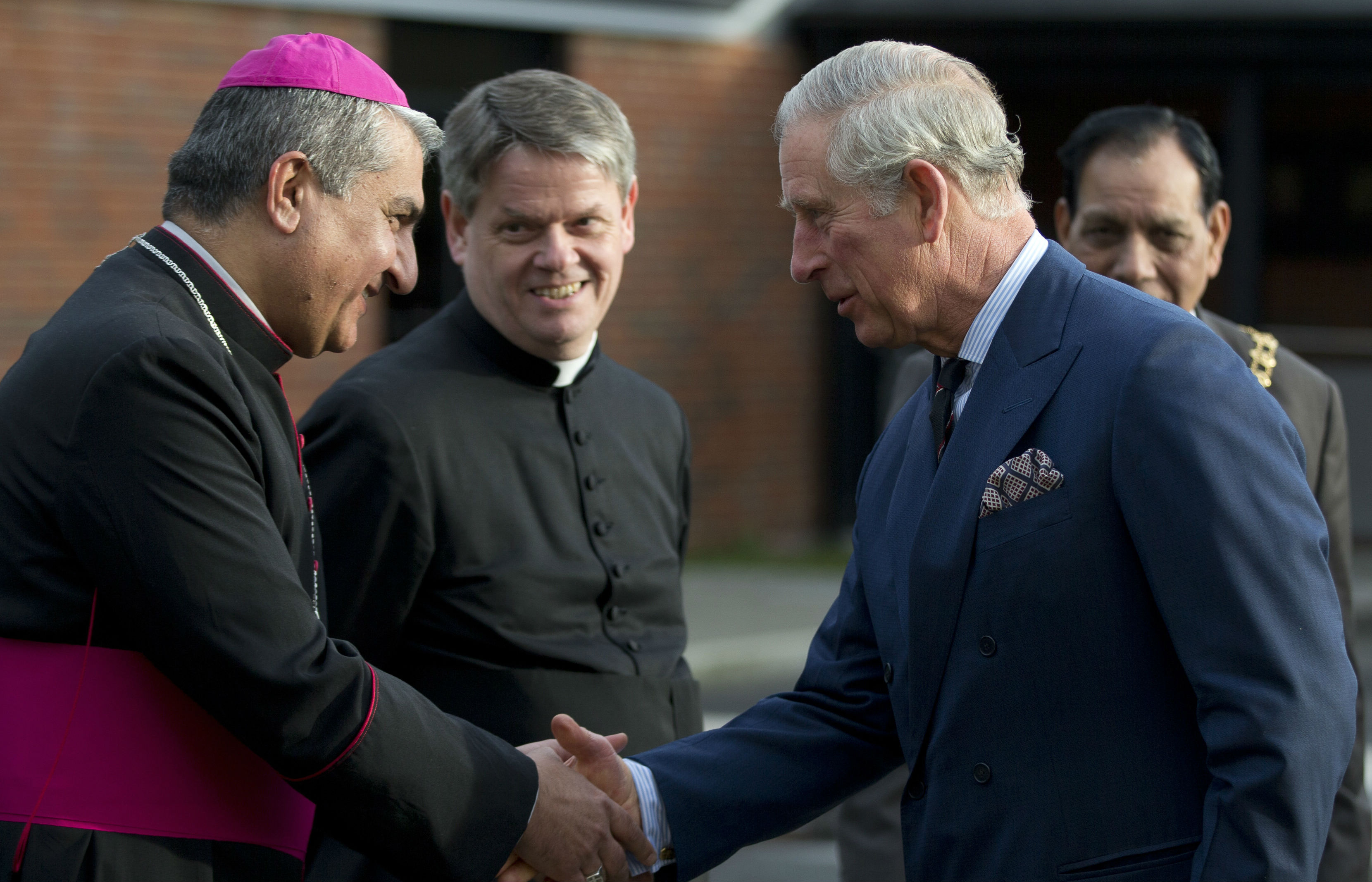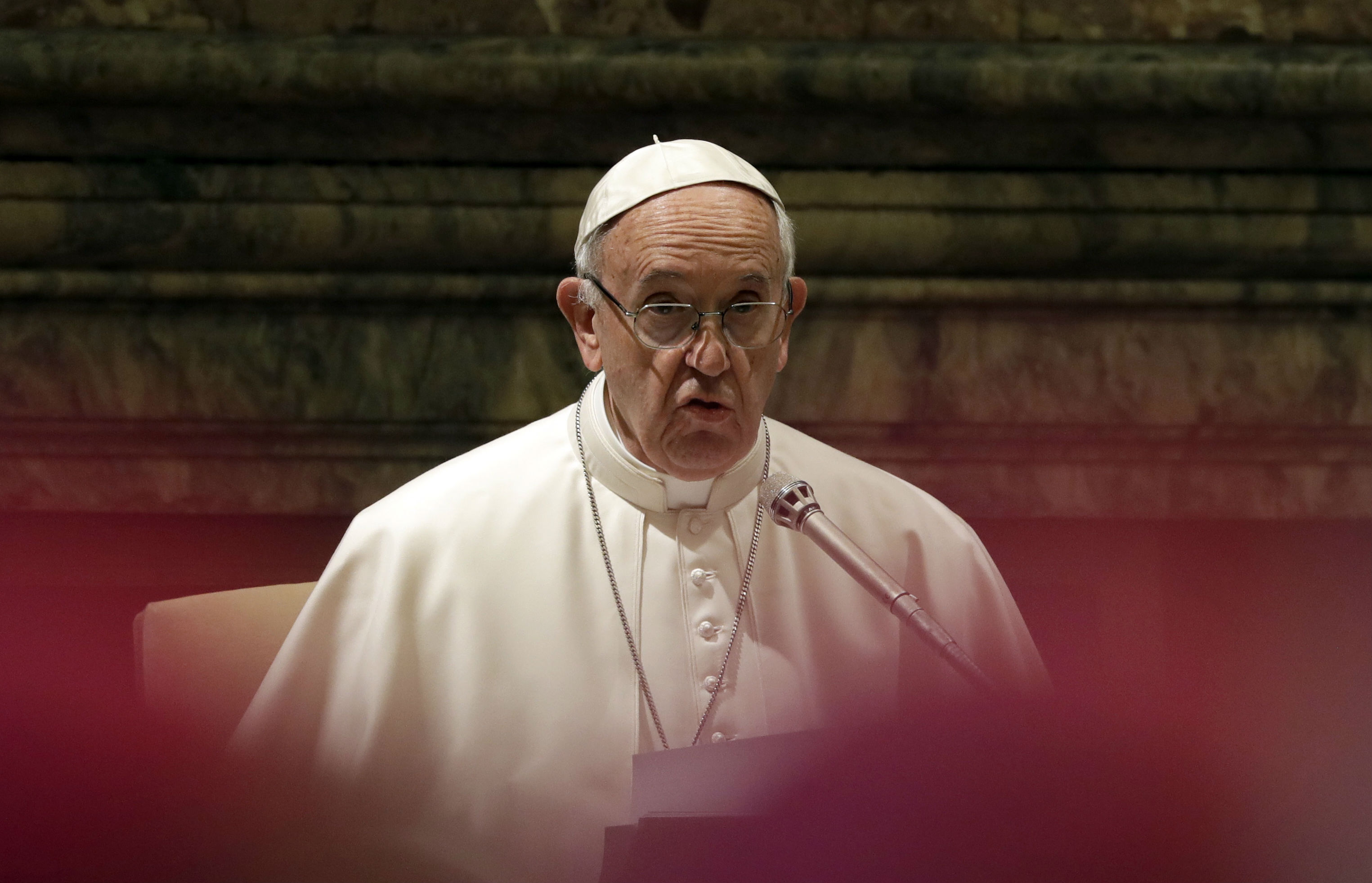Pope Francis has vowed to press ahead with Vatican reforms, denouncing those resisting change as being motivated by the devil and hiding behind "accusations and traditions".
In his annual Christmas address to the Roman Curia, Francis set forward twelve guiding principles for his shake-up of the Church's headquarters, including an end to the old curial tradition of “demotion by promotion”, the practice of getting rid of people by promoting them.
The Pope, who was elected with a mandate for reforming the Vatican, talked about a “hidden resistance” to change which comes from “hardened hearts content with empty rhetoric of a complacent spiritual reform” and a malicious resistance inspired by the devil and dressed up as tradition, accusation and self-justification.
Francis has lambasted the “diseases” of the Curia in previous speeches at this time of year and after delivering this one gave his collaborators a Christmas present: a book written by a Jesuit, Claudio Acquaviva, titled “Curing the Illnesses of the Soul”.
Among those listening to Francis’ address inside the Vatican today was Cardinal Raymond Burke, who has threatened to make a formal “act of correction” to the Pope’s modernising plans on giving Communion to the divorced and remarried. After the Pope finished speaking the cardinal was seen briefly greeting Francis and taking his copy of Aquaviva’s book.
In his speech today the Pope called for more lay people, particularly women, to be given roles in the Church’s central administration, an organisation where all the top jobs are currently held by ordained men. He also wants people representing the global Church to have roles in Rome to better reflect the universal nature of Catholicism.
Francis called reform necessary - a “sign of vitality” in the Church - and put forward 12 principles to work by. These are:
- Individual responsibility (personal conversion);
- Pastoral concern;
- Missionary spirit (Christocentrism);
- Clear organisation;
- Improved functioning;
- Modernisation;
- Sobriety;
- Subsidiarity;
- Synodality;
- Catholicity;
- Professionalism;
- Gradualism (discernment).
Above all, the Pope explained, the Curia must have a “strong pastoral sense”, which prevents ambition and rivalry. “The efforts of all curial must be animated by a pastoral and a service and spirituality of communion, since this is the antidote to all poisons of vain illusory ambition and rivalry”, he said.
For years bishops on the ground have complained about Rome acting in a high-handed, non-collaborative way without respect for the local church. “In our workplaces we should cultivate a strong pastoral sense, first of all to the people we meet every day. No one should feel neglected or mistreated but everyone should experience, first of all here, the loving care of the Good Shepherd,” the Pope explained.
In his speech the Pope insisted that reform of the Curia is not like a “facelift” but instead is an ongoing process. “It isn’t wrinkles we need to worry about in the Church, but blemishes!” Francis said. He added that the curia must also “conform to the Good News which must be proclaimed joyously and courageously to all, especially to the poor, the least and the outcast” while it “must be guided by ecclesiology and directed in… the service of the Bishop of Rome”.




 Loading ...
Loading ...